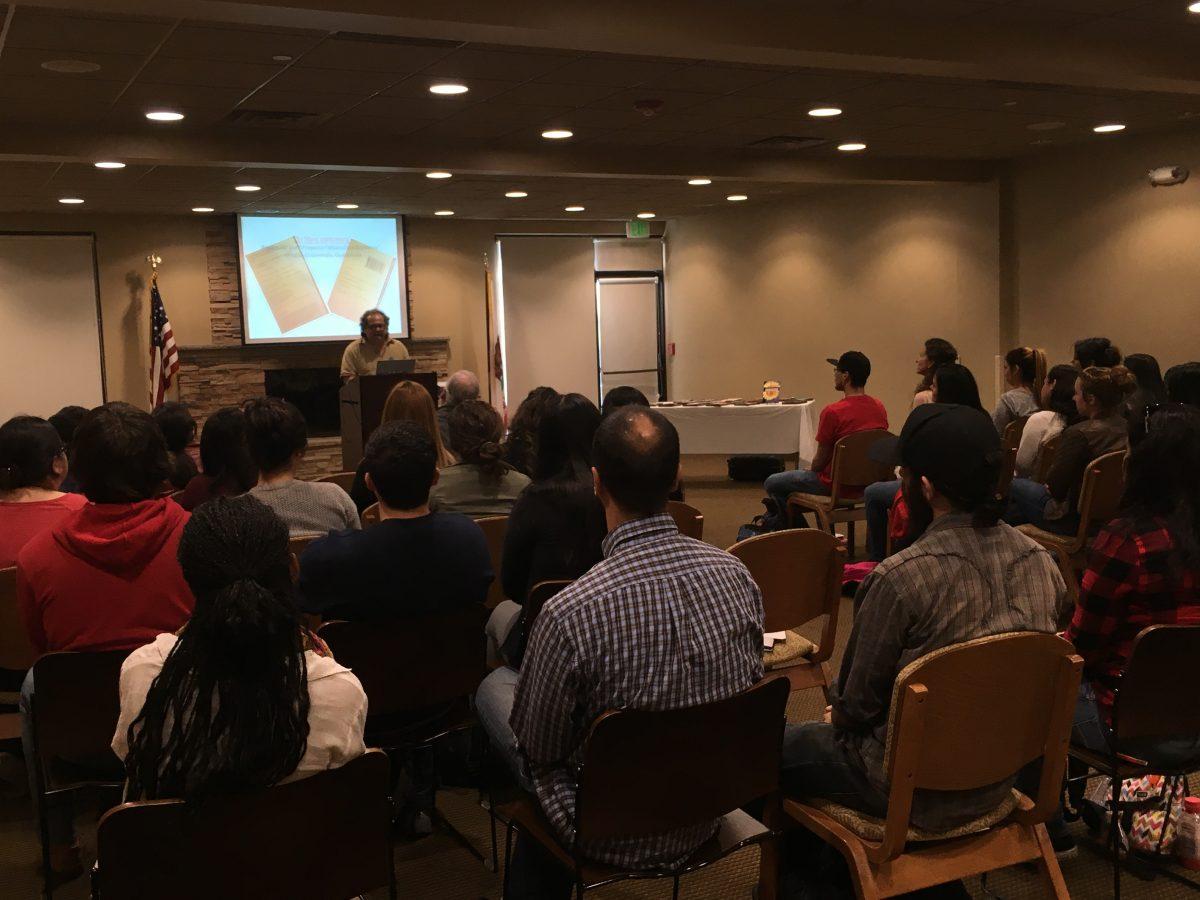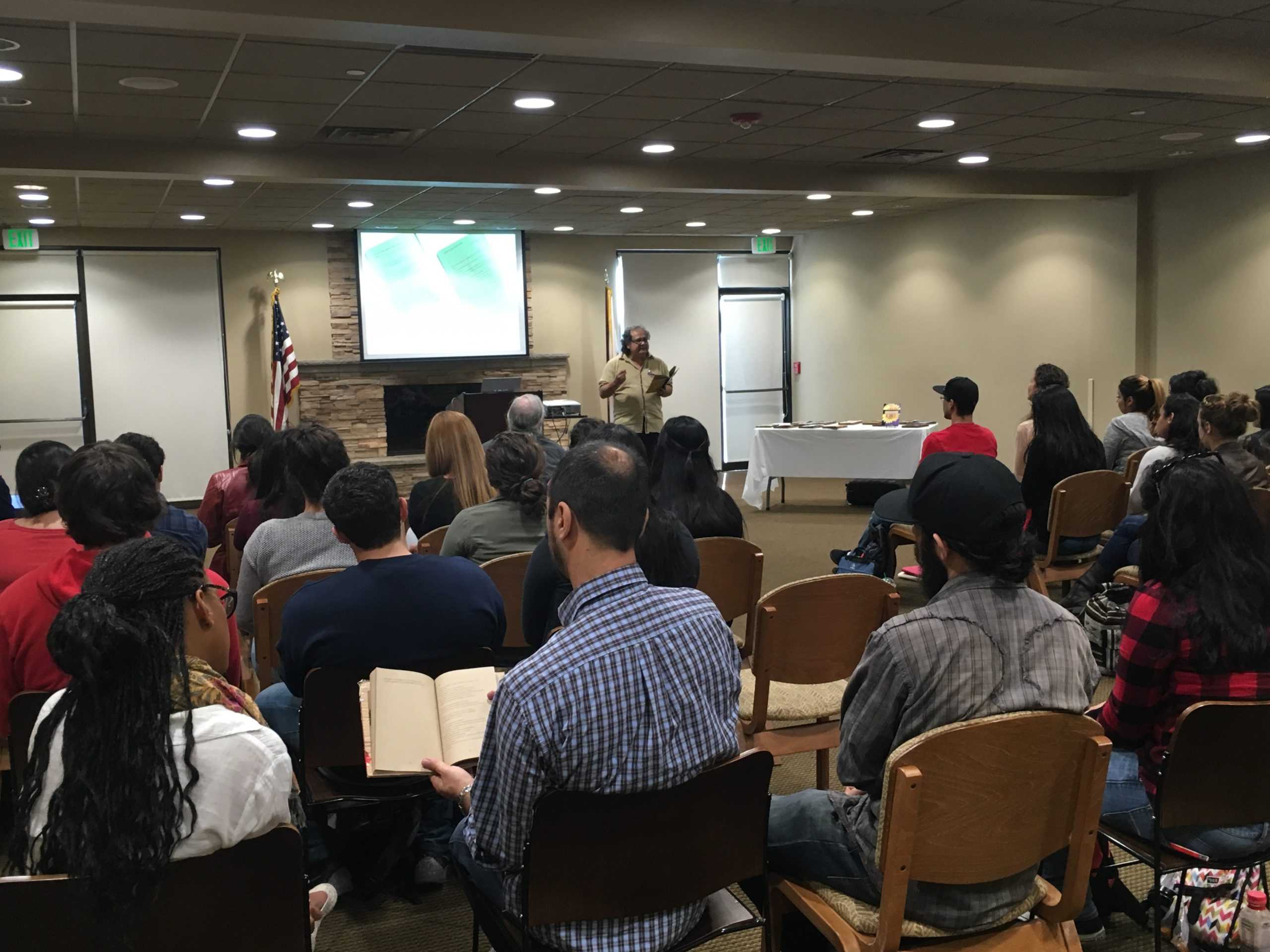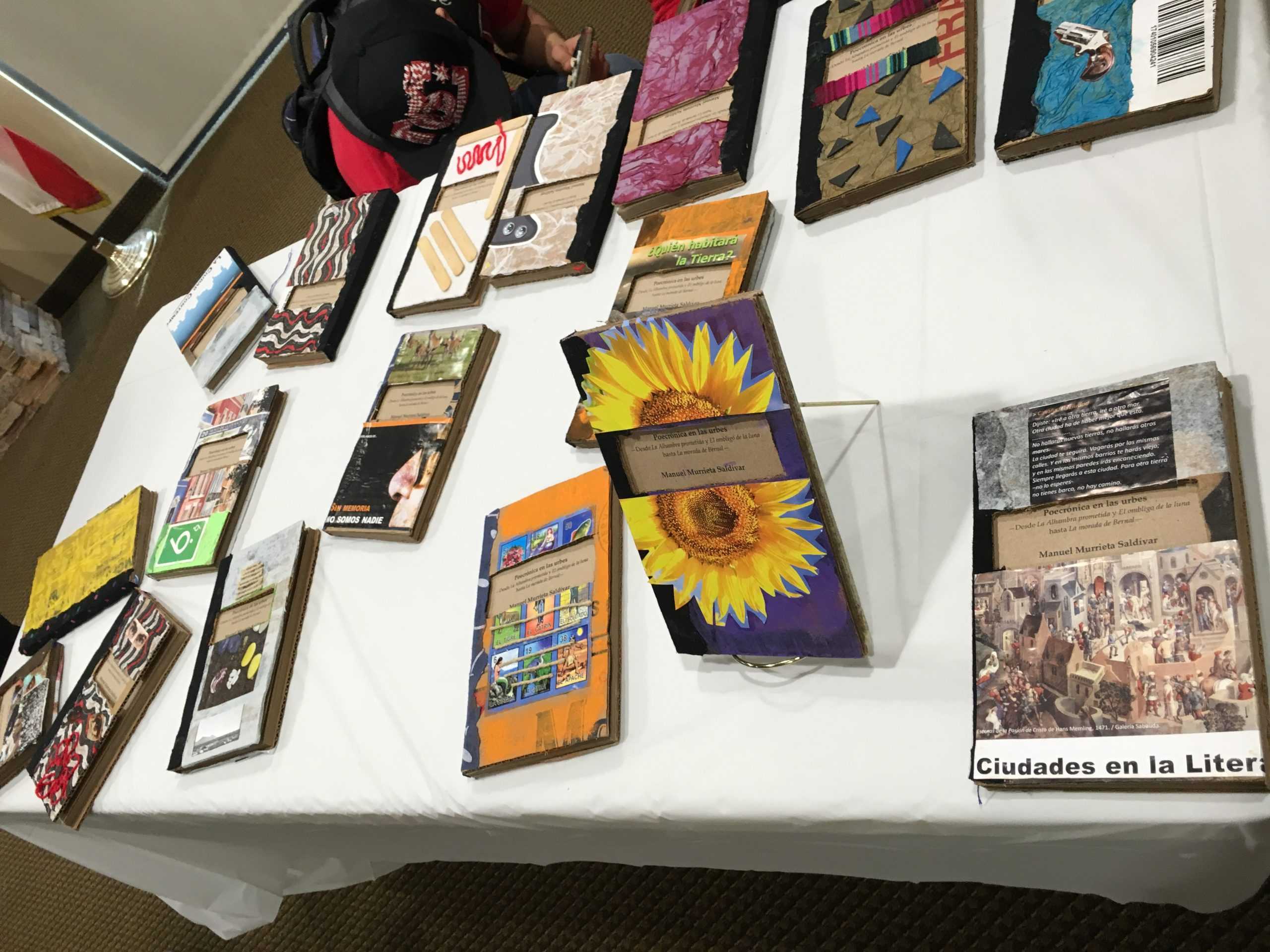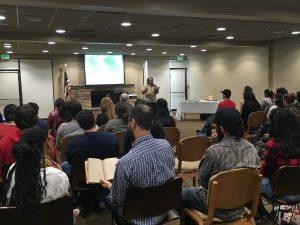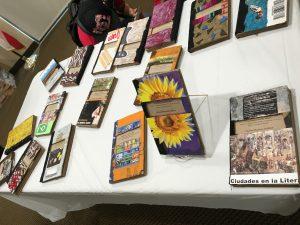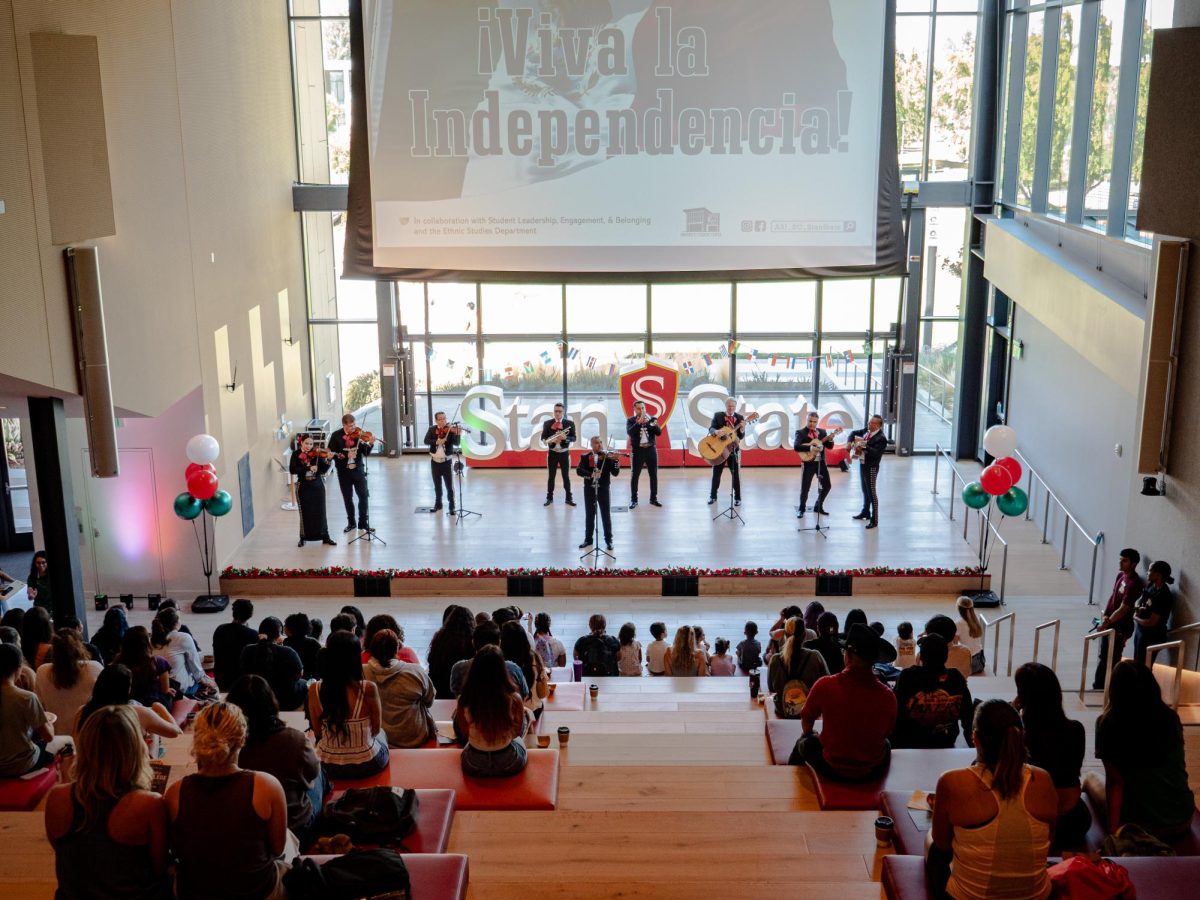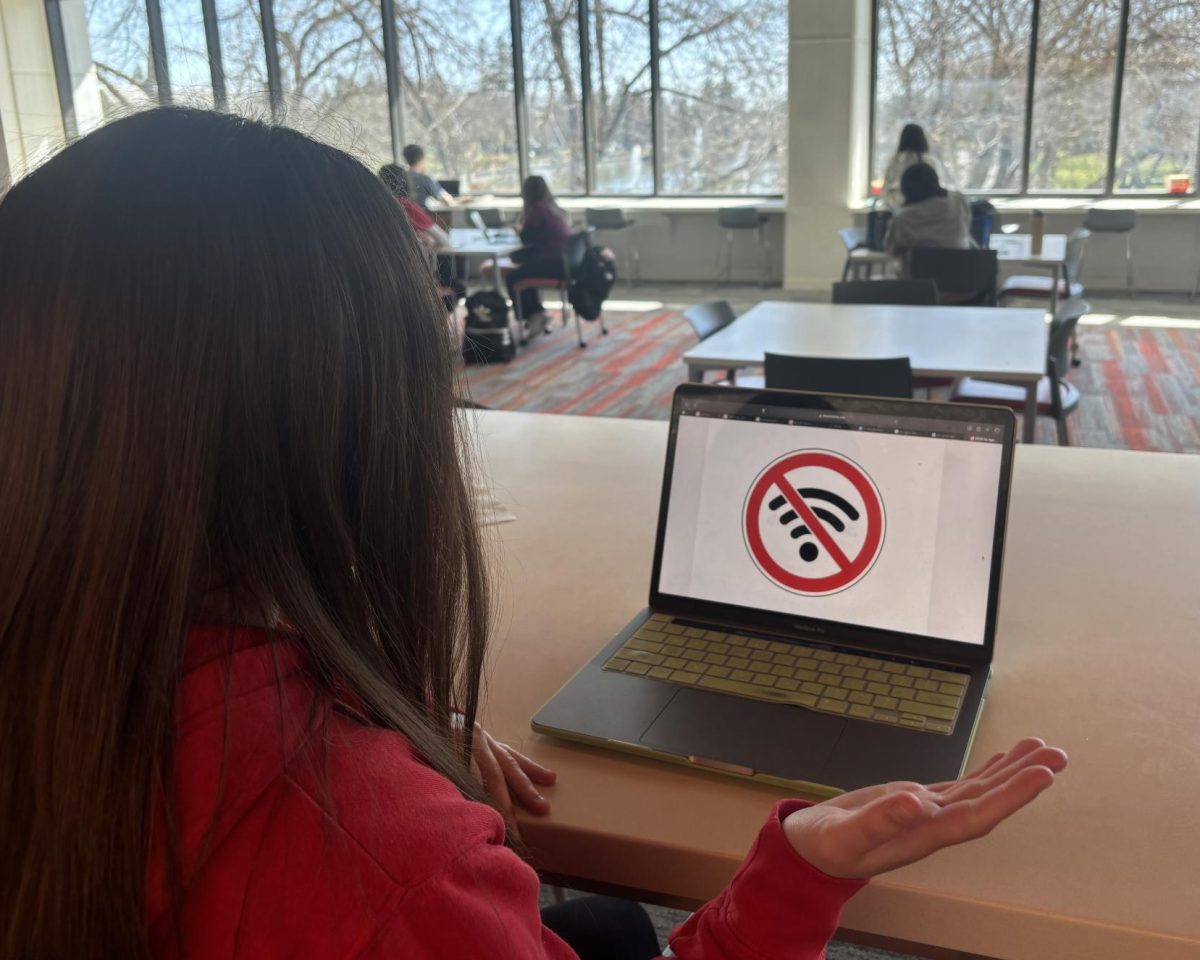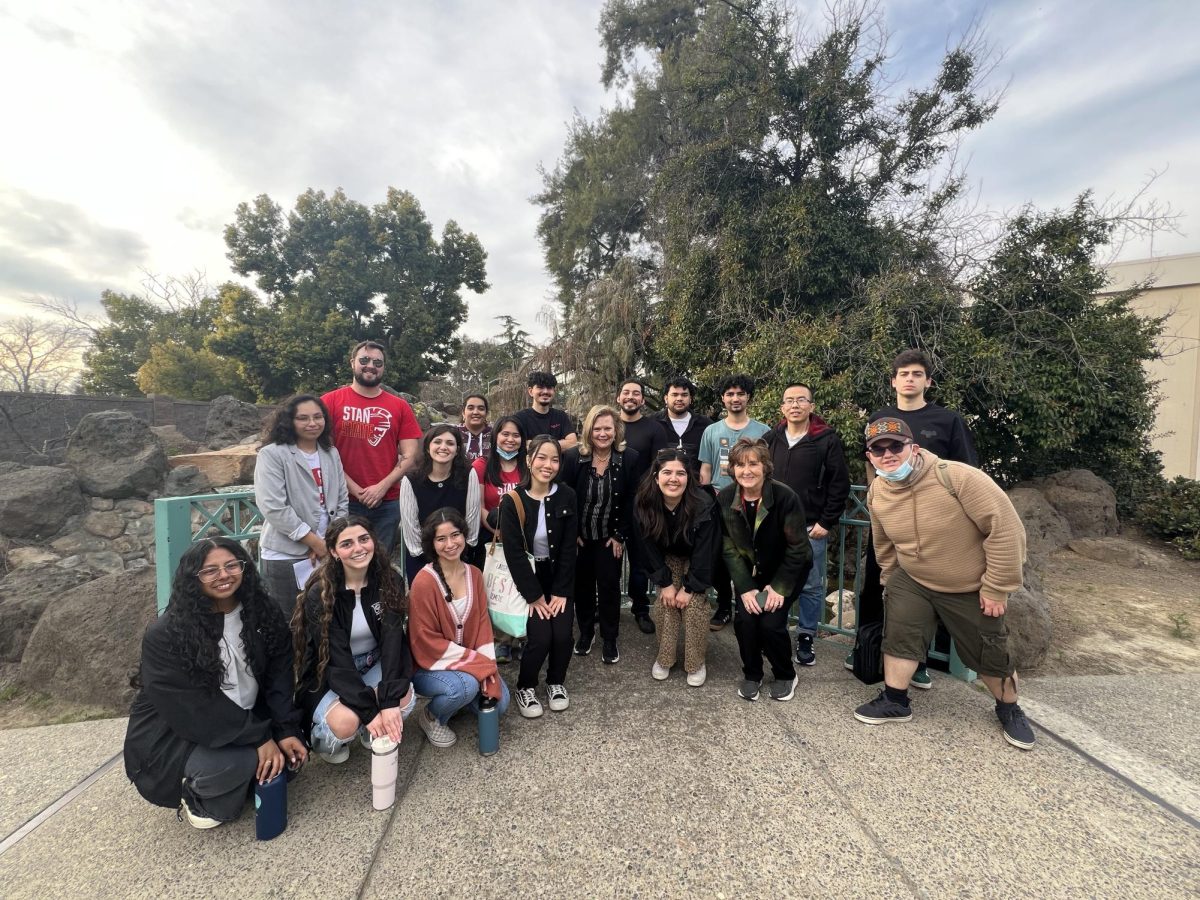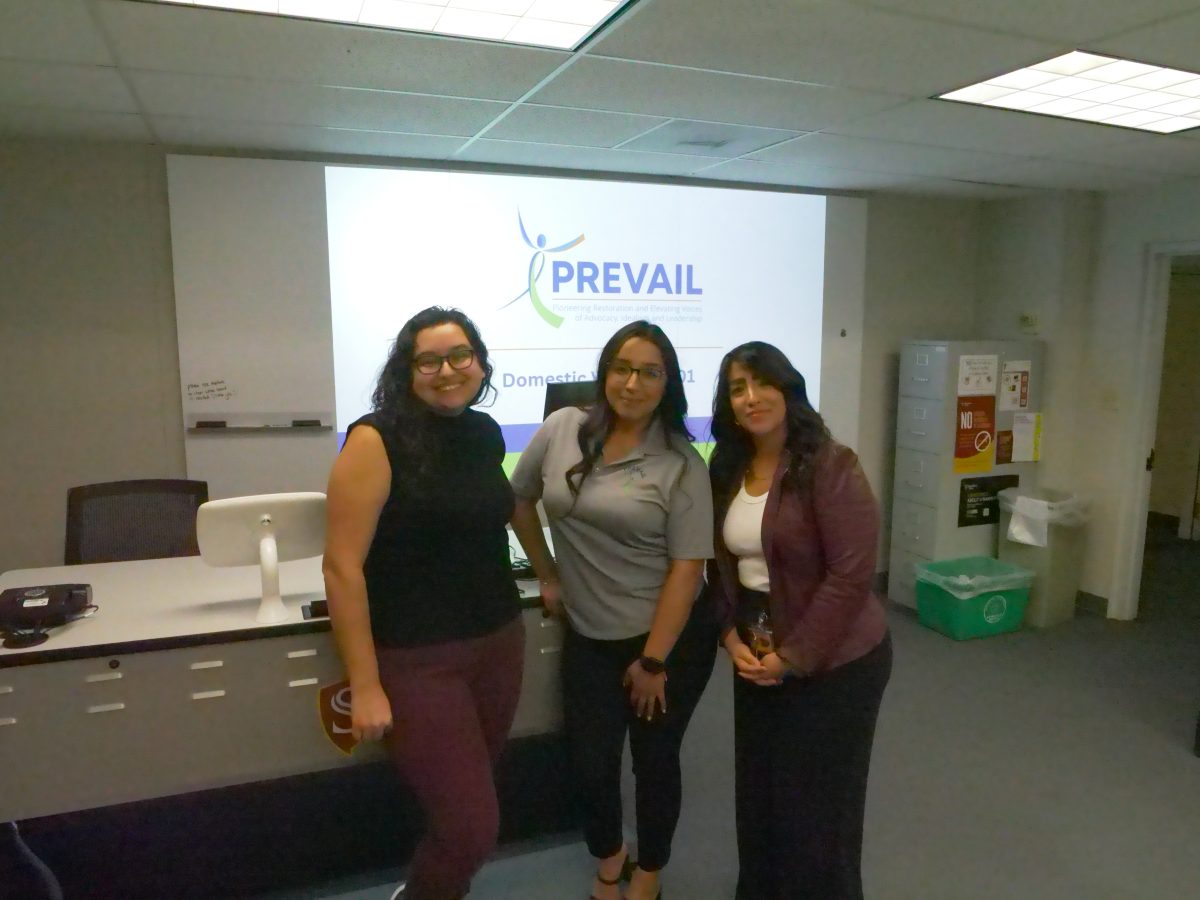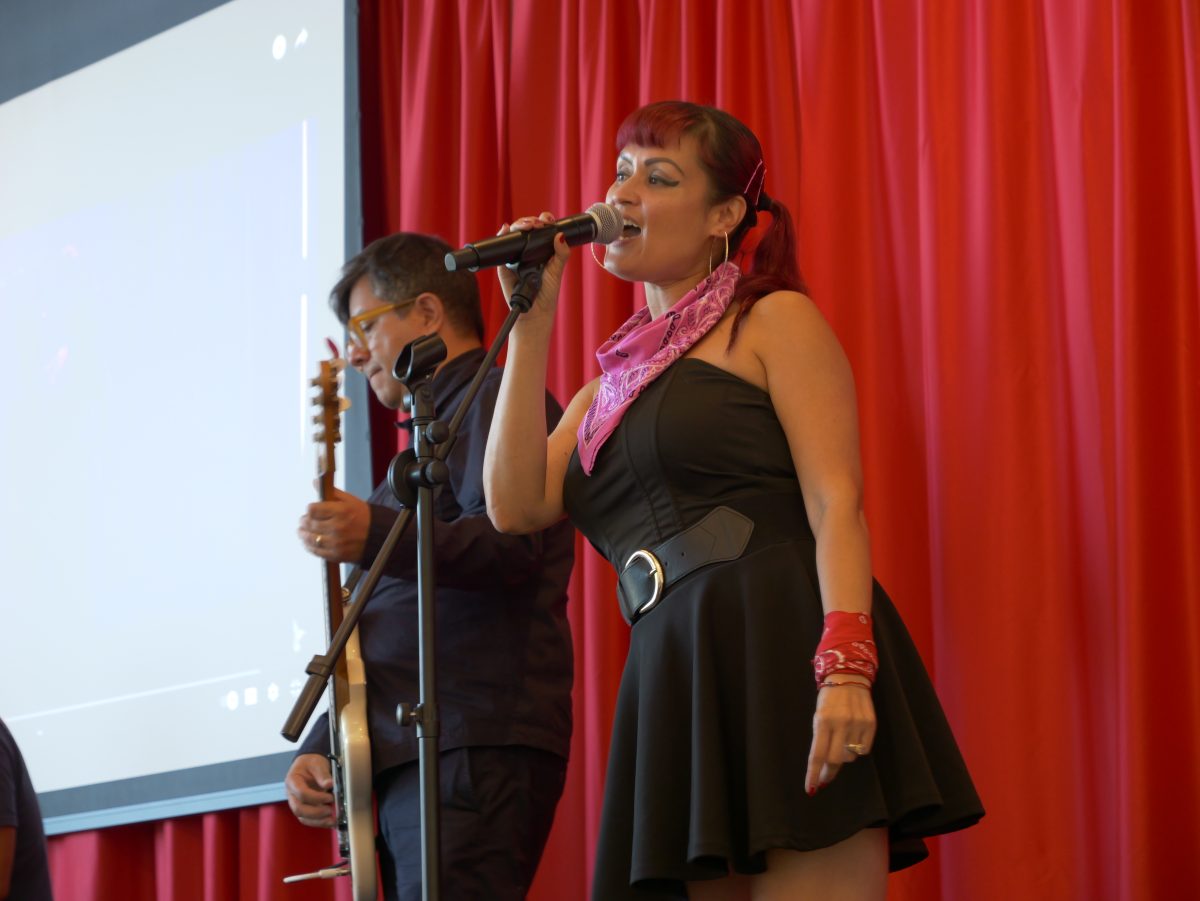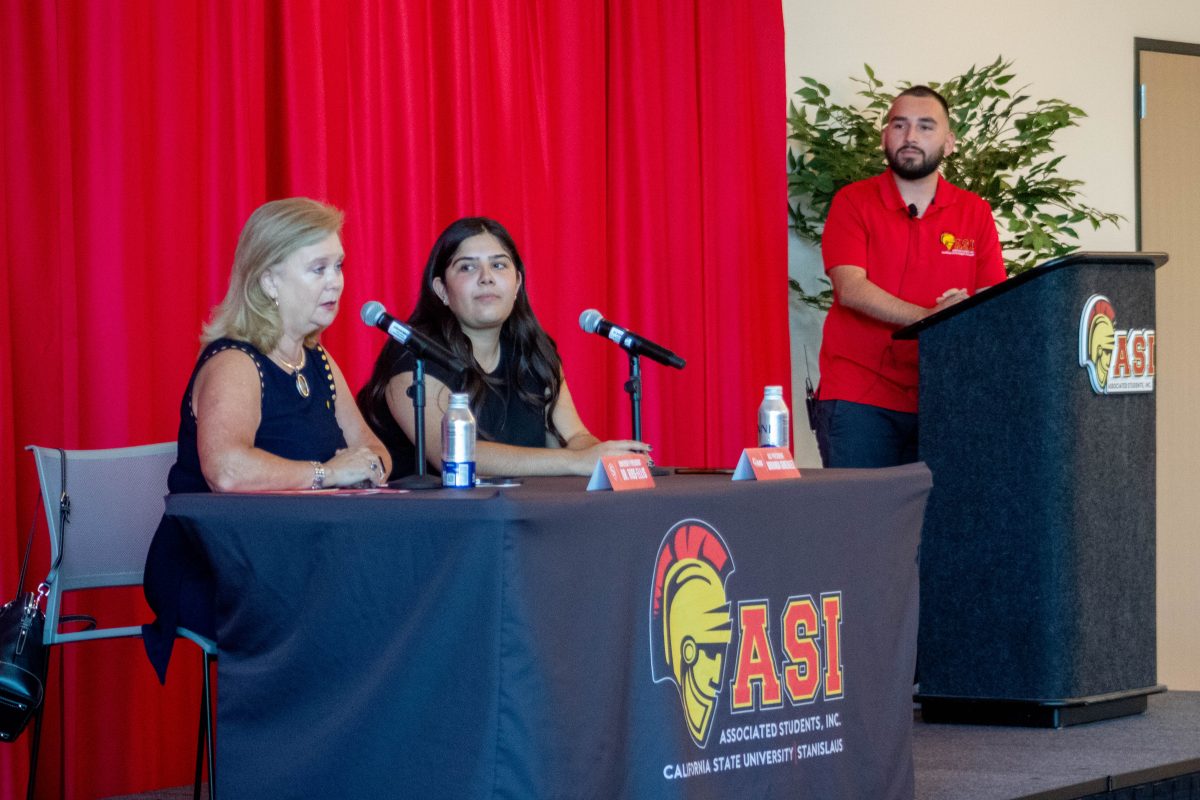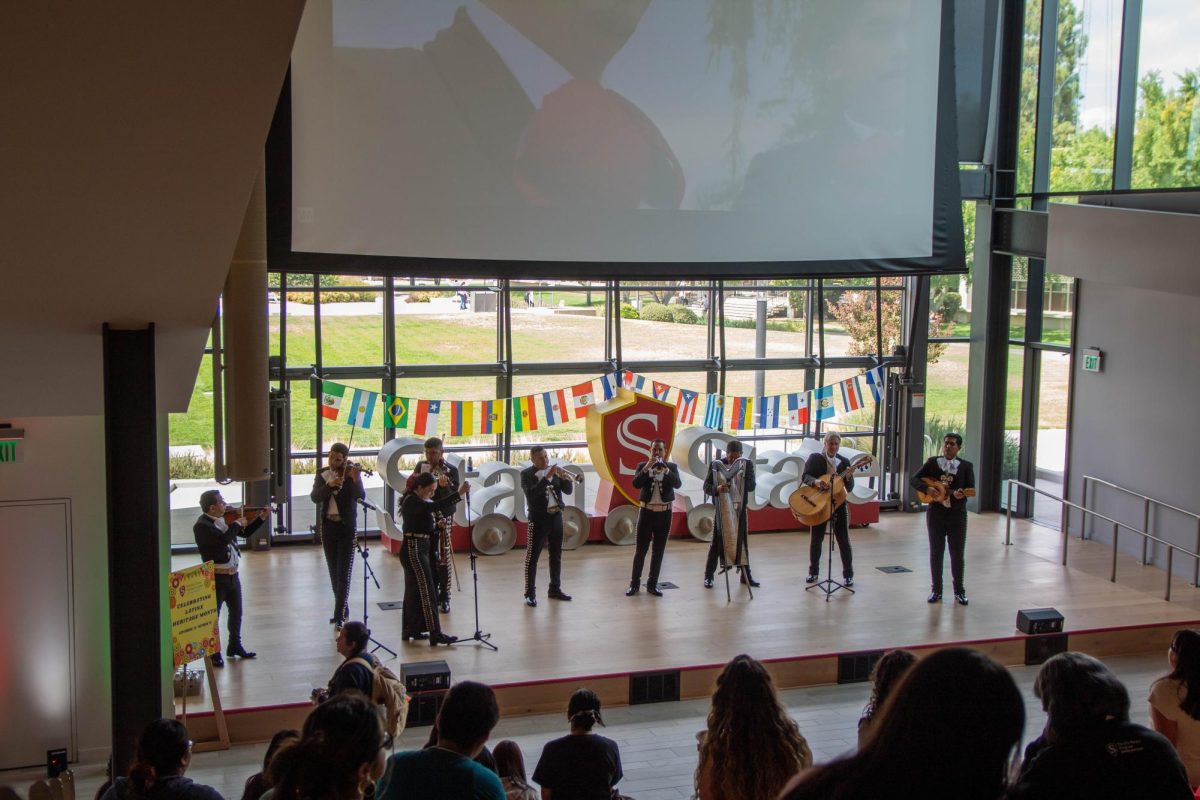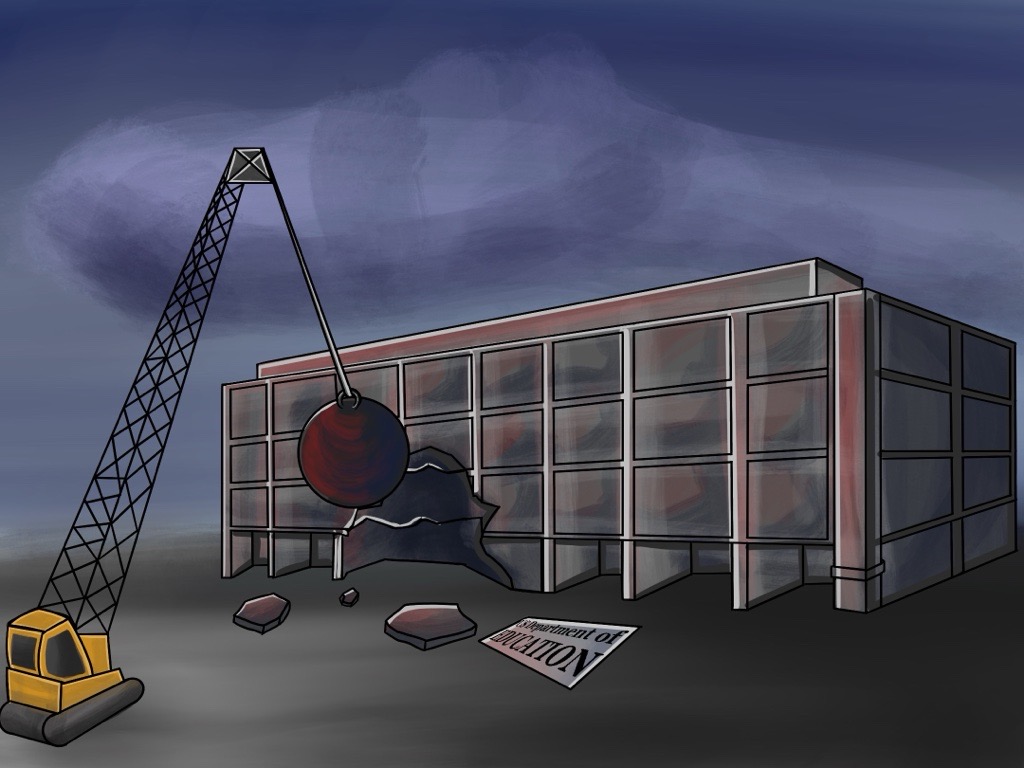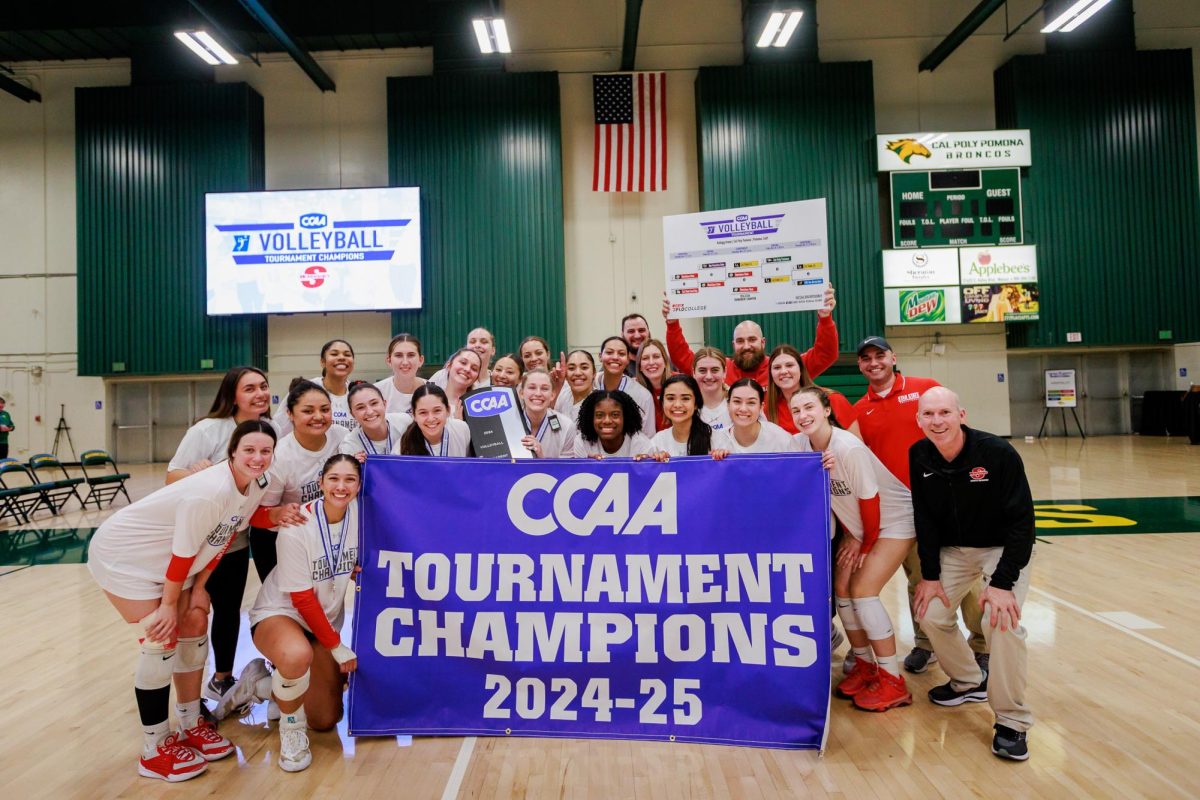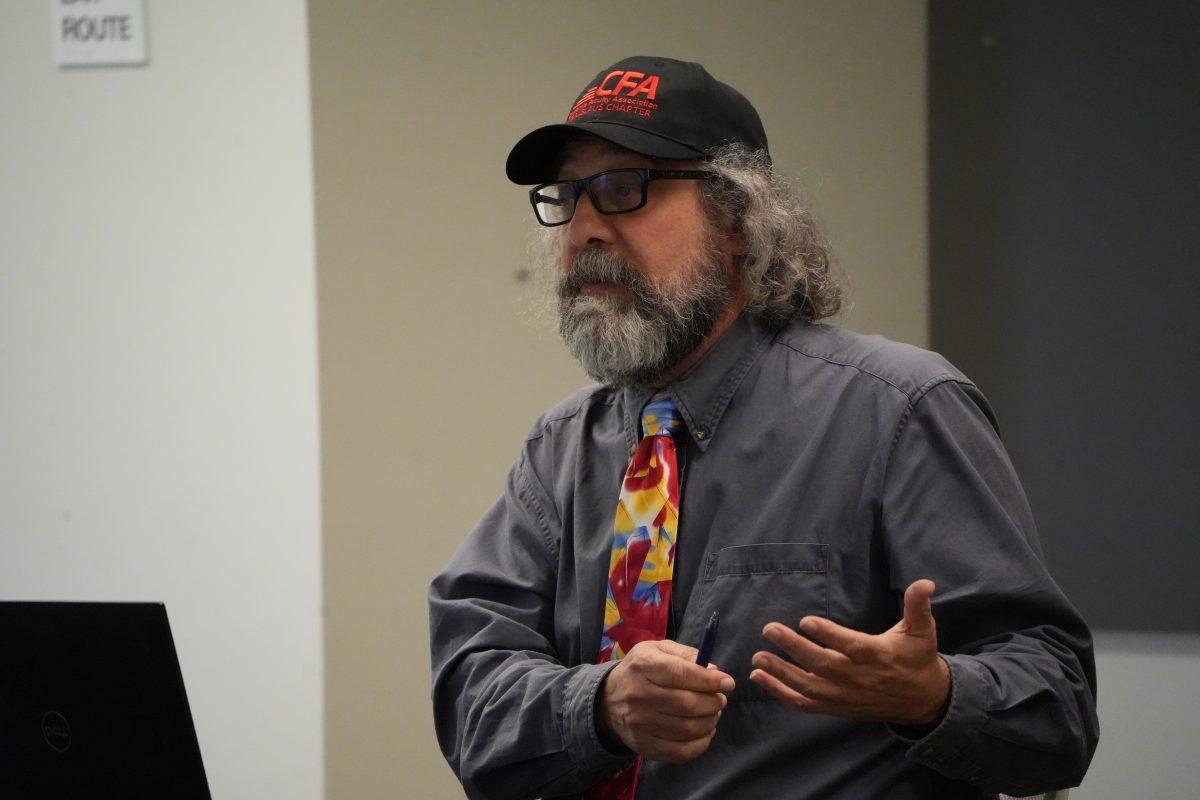On Feb. 22, Spanish professor Dr. Manuel Murrieta presented his newly-published book, “Poecrónica en las urbes,” to his colleagues and students at California State University, Stanislaus (Stan State).
His new book is unike any other book – it is made out of recycled cardboard and paper, which was produced by “Proyecto editorial Los Zopilotes” in Antigua, Guatemala.
Murrieta explained what the word “poecrónica” means in his book.
“I created the word, and it was finally used in my book,” Murrieta said. “Then, a colleague and I defined the word as a combination of chronicles and poetry, where you can tell a narration is being told while having characteristics of poetry.”
Back in 2003, in Buenos Aires, Argentina, the working class was experiencing unemployment, so they began to go around town collecting cardboard and paper from trashcans. Then, the unemployed would exchange the cardboard and paper for money to provide goods for their families. After a while, the cardboard and paper was recycled into books, opening publishing companies and new jobs.
These types of publishing companies also helped writers, who were unable to publish their literature with other big companies, get published or simply produce published books for those writers who were fascinated with the “cardboard style” book.
Spanish professor Dr. Sandra García gives a brief explanation as to what the event would be about in English for those who were present but understood little Spanish.
Spanish professor Dr. Carlos Andrés also explained to the audience how he first found out about the book recycling and publishing companies while he was in his native land, Spain. In fact, it was thanks to Andrés that Murrieta was aware about this type of publishing company.
“A long time ago, Carlos Andrés had mentioned to me about this type of publishing company,” Murrieta said. “Then, when we finally traveled to Antigua, Guatemala, I got together with some colleagues and editors – specifically with the editor of ‘Los zopilotes editorial’ – and I started to take a look at the books that the editorial had previously produced. That is when I was convinced that I wanted to publish my books in the cardboard style. I didn’t care if it didn’t have an image of a ‘best seller’ book, or an industrial publishing company book like the other books. Afterward, I submitted my manuscript to the editor, and with such luck he liked it and published it.”
This event served the author well because he had the opportunity to present his new book and to read off some of the poems contained within the book. It also gave the audience the chance to become aware of the new methods of recycling other countries are using.
The event also was able to present the book to an audience who might only see Murrieta as a professor.
“As professors, we do not only teach classes, nor do we only dedicate our time to create a syllabus, or simply stand in front of a classroom giving professorship, but we also have activities or research to do,” Murrieta said. “We make three or four activities, sometimes they are mandatory, but other times they are activities that come from initiative.”
Murrieta also explained his event’s objective.
“One of the objectives of this event is for students to develop their creativity and for them not to limit themselves by only doing what the professor is asking of them, but to acknowledge their talents – they don’t necessarily have to be literary talents, but something creative and artistic in general – and to find motivation, to find inspiration and maybe an event like this will ignite their creativity,” Murrieta said.
The book “Poecrónica en las urbes” contains several poems written by Murrieta, which are a product of his trips around the world.
“The process to make a book, physically, is relatively quick,” Murrieta said. “Writing a book, however, is a difficult process, due to the fact that you have to put together your inspirations, the experiences and the time to put it into text. In my case, this book contains poems that were written during the 90’s. In chapter two, that is where recent ‘poecrónicas’ are presented and they demonstrate the places I have traveled in recent times.”
With quite a few chuckles, Dr. Murrieta confessed that throughout his job’s trips, he takes advantage of his free time and goes around the town or country they travel to and likes to learn about it.
“I have always had the curiosity of traveling,” Murrieta said. “In fact, that is a reason as to why I am in this country and in this university. In academia, you get a lot of support with resources like traveling for conferences, or to simply read some of your text pieces. For example, the poem ‘La Alhambra’ that I just read, is a product of a conference we traveled to. These conferences can last about a day, but you only participate for one hour, so you have the rest of the day to get out and explore the surroundings. Sometimes, the trip you make during your free time is much more interesting than the conference itself.”
When the presentation of the book was over, various students approached Murrieta asking, with enthusiasm, for a copy of his book with his autograph and other kind words written inside.
Murrieta announced that he would like to create a space where he and students can get together at least once a week to share literature pieces in order for the students to start acknowledging their talents and making their creativity grow.
Categories:
Dr. Murrieta on his newly published book, “Poecrónica en las urbes”
Jesus Alvarado
•
March 3, 2016
0
Donate to Signal
Your donation will support the student journalists of California State University, Stanislaus. Your contribution will allow us to purchase equipment and cover our annual website hosting costs.
More to Discover

